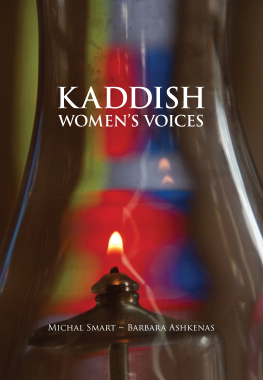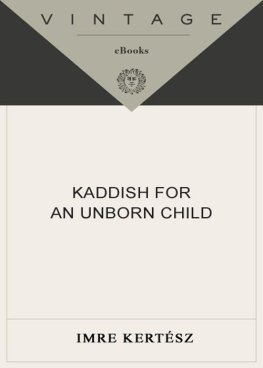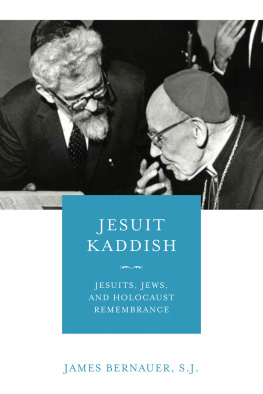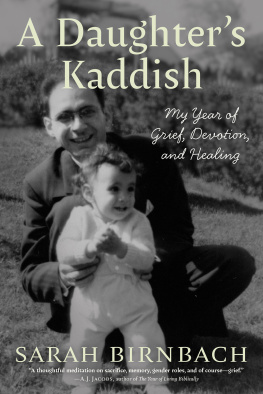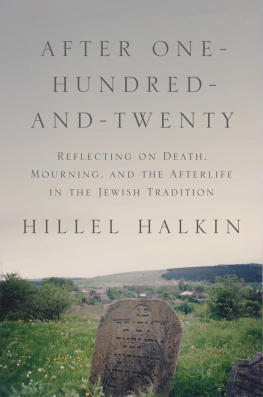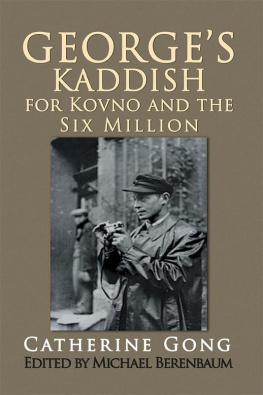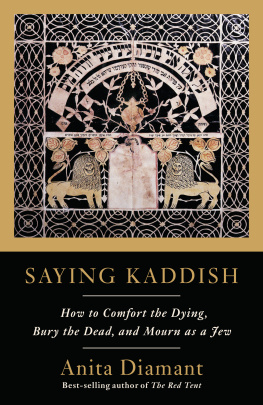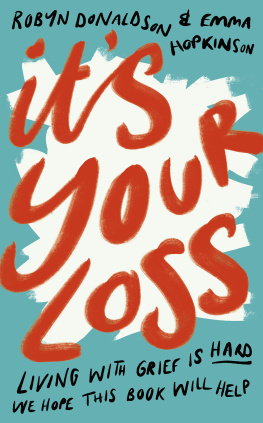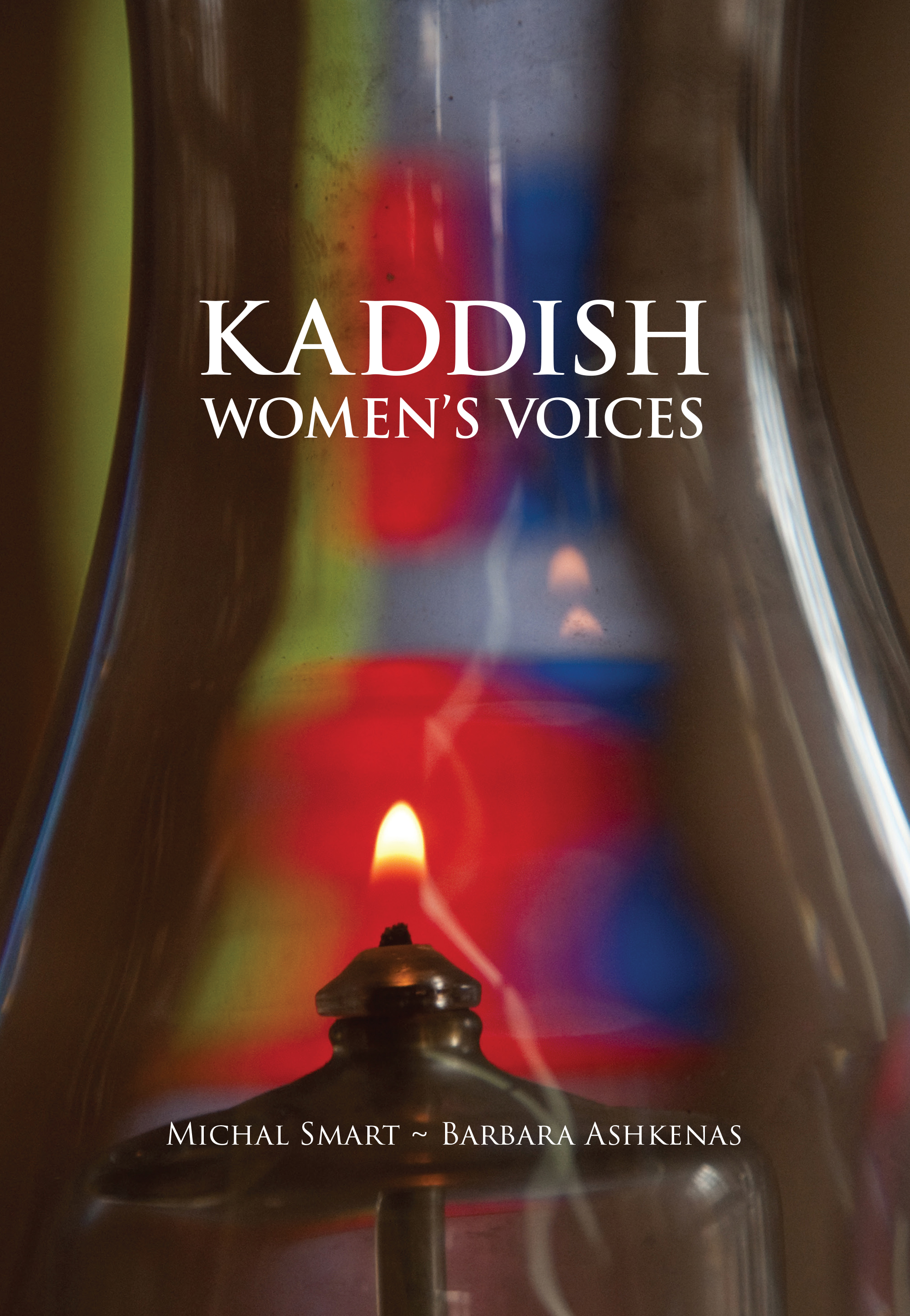KADDISH
WOMENS VOICES
Kaddish
Wome n s V oices
Edited by Michal Smart
Conceived by Barbara Ashkenas
Urim Publications
Jerusalem New York
Kaddish, Womens Voices
Edited by Michal Smart
Conceived by Barbara Ashkenas
Poems: Michal Smart
Copyright 2014, 3 by Michal Smart and Barbara Ashkenas
All rights reserved
No part of this book may be used
or reproduced in any manner whatsoever without
written permission from the copyright owner,
except in the case of brief quotations
embodied in reviews and articles.
ePub ISBN 978-965-524-171-6
Mobi ISBN 978-965-524-172-3
PDF ISBN 978-965-524-173-0
(Hardcover ISBN 978-965-524-150-1)
Cover design by the Virt ual Paintbrush
Front cover photograph by Yehoshua Halevi
ePub creation by Ariel Walden
The Library of Congress has cataloged the printed edition as follows:
Kaddish , womens voices / edited by Michal Smart ; conceived by Barbara Ashkenas.
pages cm
Includes bibliographical references.
ISBN 978-965-524-150-1 (hardcover : alk. paper) 1. Kaddish. 2. Jewish mourning customs. 3. Women in Judaism. 4. FeminismReligious aspectsJudaism. I. Smart, Michal, 1965 editor. II. Ashkenas, Barbara.
BM670.K3K33 2013
296.445dc232013023087
Urim Publications, P.O. Box 5228 7, Jerusalem 9152 1 Israel
www.UrimPublications.com
I n L oving M emory
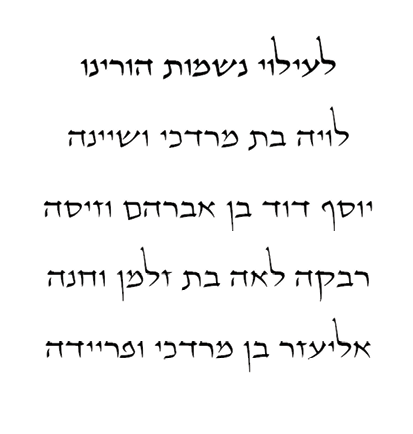
* * *
W e dedicate this book, with love, to our Parents
M ay their memory be for a blessing
Louise Weiss Fox
David Joseph Fox
Evelyn Weinberger
Edward Weinberger
Contents
Barbara Ashkenas
Michal Smart
Poems
Michal Smart
One
Hodie Kahn
Shelley Richman Cohen
Rachel Mesch
Fiona Hallegua
Two
Pearl Tendler Mattenson
Karen Markowitz Michaels
Rebecca E. Starr
Debbie Yatzkan Jonas
Three
Jennie Rosenfeld
Laila Goodman
Abby Ellison Kanarek
Marlyn Bloch Jaffe
Deborah Fineblum
Four
Belda Kaufman Lindenbaum
Ellen Copeland Buchine
Sara Wise Prager
Laura Sheinkopf
Deb Kram
Five
Vera Schwarcz
Leah Braunstein Levy
Joni Nathanson
Rachel Cohen
Six
Nessa Rapoport
Nechama Goldman Barash
Meryl Greenwald Gordon
Jeralyn Goldman
Rachel Goldstein Jubas
Seven
Debra Shaffer Seeman
Rochelle Barouh Senker
Toba Weitz Goldberg
Esther Reed
Debra Luger
Eight
Geela R. R. Naiman
Anne Venze Sendor
Deborah Greniman
Michal Smart
Nine
Aviva Ephraim Maller
Shifra Aviva (Posner) Deren
Sandi Ehrlich Waldstreicher
Amy Koplow
Chaya Rosenfeld Gorsetman
Joyce Solomon
Paula Gantz
Barbara Becker
Dina Roemer
Eleven
Barbara Ashkenas
Judith Schwimmer Hessing
Suzanne Wolf
Chana Reifman Zweiter
Twelve
Mark Dratch
Daniel Cohen
David Walk
Penny Cohen
Michal Smart
Preface
Barbara Ashkenas
Th ere is nothing so whole as a broken heart.
The Kotzker Rebbe
W hile saying Kaddish for my Mom in 2007, a half dozen other women in my community happened to also be saying Kaddish. Together we became a warm and supportive group. Jointly we embraced our sadness and quenched our thirst for intimacy and kindred spirituality. Over the years, while raising my children in Stamford, CT, I had befriended many women, but I must admit the Kaddish bond was rare and special.
But what did Kaddish mean to us? How was saying Kaddish as a woman different than the experiences recounted by men? While in mourning, I turned to Jewish literature for guidance and insight. Yet none of these were written from a womans perspective. I began to imagine a book about women saying Kaddish; one that shared our experiences and could serve as a guidepost to others. I shared my vision with my Kaddish friends and family. They all encouraged me to make this journey.
I was introduced to Michal Smart in April 2010. Mid-conversation, Frank Sinatras My Way came over the Starbucks speakers. When we discovered that this song had been played at both my mothers and her fathers funerals, we knew that we were meant to collaborate on this project. Michal took the reins as lead editor, and my vision would never have become a reality without her.
The conversation continued in my living room in May. A dozen women who had recently experienced a loss and said Kaddish came together to begin a new project: the creation of the book Kaddish, Womens Voices . Loss was the currency of intimacy, and through listening to one another, a community was created. The room filled with a sense of poignant and powerful possibility.
This book is a continuation of those conversations. It is part of a growing conversation, where womens voices can be heard through the heartstrings of Kaddish.
It is interesting to note that in the first edition of Rabbi Maurice Lamms classic purple book, Th e Jewish Way in Death and Mourning , written in 1969, he states that the obligation to recite Kaddish is placed upon the son, not the daughter. Thirty years later, however, in the second edition of his book, Rabbi Lamm notes that... today, reciting the Kaddish is open to all women who want to express their grief in this manner and speak to the Almighty on behalf of their beloved departed relatives.... All Jewish people stand to benefit from a womans holy resolve in saying Kaddish.
I believe women who commit to saying Kaddish do indeed have a holy resolve that shines through in these pages. Some resolve to hold onto their loved one a little longer. Some need to resolve issues with the departed, and use Kaddish to reflect and bring closure. Still others resolve to renew their commitment to Jewish life. I hope this book will serve as a companion to others, spark many meaningful conversations, and open the possibilities for women to choose how to mourn and remember a loved one.
Through Kaddish, may our broken hearts indeed become whole again, and in the words of Rabbi Yosef Eliyahu Henkin (quoted by Rabbi Lamm), may we be blessed... with kedusha , lives filled with holiness of purpose, instead of Kaddish.
Introduction
Michal Smart
J udaism takes a new mourner by the hand, and guides him or her through the initial period of life after loss. At a time of aloneness, the mourner is drawn out and supported by a caring community. Amidst tumult and change, there is also time to reflect and to feel. In the face, perhaps, of anger or a sense of abandonment, the mourner is forced to confront and communicate with God. When a key relationship has come to an end, there is an opportunity for continued involvement, and closure. And the cornerstone of this process is the recitation of Kaddish.
The grieving heart is torn open. And that openness is an opportunity to grow spiritually and to reorient ones life. As Jewish women, we inherit a legacy of strength and resilience in difficult times. In the Book of Ruth, when Naomis husband and both her sons die, she is left in a strange land, bereft and alone. Yet the very next thing we read is vatakam hi , and she (Naomi) rose up. She was not defeated. In fact, it is only at this point that we first see Naomi take life into her own hands, and begin her long journey home. Childless, the Bibles Chana is so distraught that she weeps at the holiday table and cannot eat or drink. Yet here, too, we read vatakam Chana . She rose out of her despair and turned her life around. And how did she do it? Through prayer.

